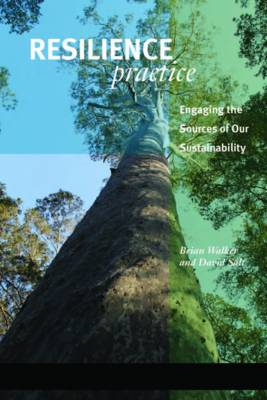

Resilience Practice Upplaga 3
- Upplaga: 3e upplagan
- Utgiven: 2012
- ISBN: 9781597268011
- Sidor: 248 st
- Förlag: Island Press
- Format: Häftad
- Språk: Engelska
Om boken
In 2006, "Resilience Thinking" addressed an essential question: As the natural systems that sustain us are subjected to shock after shock, how much can they take and still deliver the services we need from them? This idea caught the attention of both the scientific community and the general public. In "Resilience Practice", authors Brian Walker and David Salt take the notion of resilience one step further, applying resilience thinking to real-world situations and exploring how systems can be managed to promote and sustain resilience. The book begins with an overview and introduction to resilience thinking and then takes the reader through the process of describing systems, assessing their resilience, and intervening as appropriate. Following each chapter is a case study of a different type of social-ecological system and how resilience makes a difference to that system in practice. The final chapters explore resilience in other arenas, including on a global scale. "Resilience Practice" will help people with an interest in the "coping capacity" of systems - from farms and estates to regions and nations - to better understand how resilience thinking can be put into practice. It offers an easy-to-read but scientifically robust guide through the real-world application of the concept of resilience and is a must read for anyone concerned with the management of systems at any scale.
Åtkomstkoder och digitalt tilläggsmaterial garanteras inte med begagnade böcker
Mer om Resilience Practice (2012)
I augusti 2012 släpptes boken Resilience Practice skriven av Brian Walker, David Salt. Det är den 3e upplagan av kursboken. Den är skriven på engelska och består av 248 sidor. Förlaget bakom boken är Island Press.
Köp boken Resilience Practice på Studentapan och spara pengar.
Referera till Resilience Practice (Upplaga 3)
Harvard
Walker, B. & Salt, D. (2012). Resilience Practice. 3:e uppl. Island Press.
Oxford
Walker, Brian & Salt, David, Resilience Practice, 3 uppl. (Island Press, 2012).
APA
Walker, B., & Salt, D. (2012). Resilience Practice (3:e uppl.). Island Press.
Vancouver
Walker B, Salt D. Resilience Practice. 3:e uppl. Island Press; 2012.



















